CA4SH Partners Hosted Record Engagement at UNCCD COP16
The Coalition of Action 4 Soil Health (CA4SH) is rooted in the UN Convention to Combat Desertification (UNCCD). Since our official launch in 2021, CA4SH has amassed a membership of over 200 multistakeholder organizations, and collaborated with countless partners.
This year, the 16th Conference of the Parties (COP) to the UNCCD was focused on a people-centred approach to accelerating action on land and drought resilience, themed Our Land. Our Future. Since healthy soil is essential to land and drought resilience, and provides co-benefits that link with all 17 of the Sustainable Development Goals, the CA4SH network came together for a record engagement at COP16 to advocate for scaling global soil health.
The CA4SH network held 47 events alongside 70+ partners
Speakers at the 7 December event on land tenure for youth an women, co-organized by CA4SH, YPARD, CIFOR-CRAF, UNCCD Youth Caucus, YOUNGO Food and Agriculture WG, WOCAT, Action on Food Hub, and the International Land Coalition.
The diversity of events and partners engaged at COP was a true testament to soil health as a unifier for sectors, scales and stakeholders. The conference took place between 2-13 December 2024 and had seven thematic days which relate directly to CA4SH targets on policy, finance, science, and action on the ground as overlapping, central drivers of scaling global soil health.
Underpinning all of these themes and more - and central to a just transition toward resilient landscapes - are people; all events organized by the CA4SH Secretariat included youth, women, and Indigenous people as speakers. Diverse social groups experience the effects of land degradation differently, and it is central to the CA4SH approach to meaningfully engage everyone in soil health efforts.
See the events organized under UNCCD thematic days below, and visit COPSoil for more detailed descriptions.
-
Advancements in Soil Health and Land Restoration Monitoring
The Regreening Africa Approach – Scaling Up and Out
High-level Event - Land Restoration Moonshot: Success Stories
Tackling Water Scarcity and Drought: Sustainable Solutions for Food Systems
Workshop on efforts made by CSO to mitigate DLDD, - Side event organized by ABSO-ACD, King Abdullaziz University, CIFOR-ICRAF
Improving policy dialogue, knowledge management, information dissemination and stakeholder management in the GGW – Lessons from the ongoing regional support programs
From research to action: Leveraging scientific evidence on the land-based planetary boundaries for effective solutions
Land restoration for and by all: Bringing together Africa’s AFR100 and Landscape Partnership Asia (LPA) to achieve the UN Decade on Ecosystems Restoration and Global Forest Goals by 2030
Restore Degraded Land, Promote Green Development
-
A just transition to more sustainable extensive livestock production systems
Soil Health as the Foundation: Implementing and Monitoring Landscape Restoration for Achieving Land Degradation Neutrality and the Sustainable Development Goals
Agroforestry and Community Forestry for Rehabilitation of Degraded Lands
The National Center for Vegetation Cover Development and Combating Desertification (NCVC) Harnessing the potential of agroforestry for food security, livelihoods, and land restoration in the Kingdom of Saudi Arabia - MoU Signing
Sustainable Management of Soils in Drylands from A Soil Health Perspective
Why drought resilience matters for the global environment
Potential of silvopastoral systems to global decarbonization, highlighting the possibilities of improving carbon sequestration
Sustainable Land Management and Agroecology in Synergy: Evidence, Good Practices and Lessons Learnt for Scaling
Land and natural resource tenure, governance and food systems: international collaboration for local solutions
Soil Health for Food Security and Resilience
The Nairobi Declaration on African Fertilizer and Soil Health: Accelerating action on soil health in Africa for resilient landscapes and food security
-
Valuing grasslands and rangelands
Cultivating Change for Land Degradation Neutrality through Evidence-based Policy and Practice
Investing in soil health in Africa: A pathway to multiple SDGs
Four Years of Learning from Monitoring the Implementation of the UNCCD Land Tenure Decision in Six Countries
UN Decade on Ecosystem Restoration: Your ideas for the next 5 years
How Integrated Land Use Planning (ILUP) contributes to LDN, food and tenure security and multiple environmental goals – Country examples and an overview of the progress since COP.15
Valuing multifunctional dryland systems for people, climate, and biodiversity
-
Unlocking large-scale dryland restoration: the Namibian example
Women, Youth and Land Tenure for Land Restoration and Resilience
Nature-based Solutions for Drought: Advancing ecosystem restoration to reduce drought risk
Restoring Balance: Livestock Management for Ecosystem Resilience and Land Degradation Neutrality
Gender-transformative land restoration: a how-to dialogue
-
How are young visionaries rewriting the future of Africa's landscapes?
Setting the Stage: The Science” – Panel Discussion on Aridification and Sustainable Land Use Systems
What if youth led the way? Redefining action for land, culture, and people
-
UN Decade on Ecosystem Restoration. Target 2
Securing the future for people and planet – managing soils for a resilient, sustainable future
Local & Inclusive Forest Governance: a key to scale up and leverage private investment for sustainable land restoration across the Great Green Wall
Leveraging Digital and Innovative Technologies for Agricultural Water Management
-
Breaking Barriers: finance, science and partnerships for rangeland restoration
Financing Soil Health and Restoration for Food Systems Transforming
Achieving the Rio Conventions and SDGs through multifunctional landscapes that mobilize sustainable finance, effective collaboration, and stakeholder engagement
Scaling a people-centred approach to reversing degradation and enhancing resilience necessitates an enabling environment that fosters full and equal participation - especially for farmers and land managers. Policy, finance, and knowledge work together to support people on the ground, were the guiding themes of the 2024 CA4SH Webinar Series, and were explored extensively in the events at COP16.
"Every $1 invested in land restoration yields $7–$30 in economic benefits," shared Dr Eliane Ubalijoro, CEO of CIFOR-ICRAF in . Dr. Ubalijoro emphasized the role of non-state actors like CIFOR-ICRAF in maximizing these returns and maximizing positive outcomes for livelihoods and communities.
Christine Magaju (Research Associate, Soil and Land Health, CIFOR-ICRAF) moderated four CA4SH events and shared her expertise in soil health monitoring as a panellist in several partner events.
Rural people in the Global South are disproportionately affected by the effects of the climate crisis and land degradation, which only exacerbate vulnerability. Smallholder farmers operate five out of every six farms in the World. Moreover, they produce about 35% of the World’s food, yet smallholder farmers are disproportionately poor, requiring support to adopt healthy soil practices.
At an event on 11 December, Finance Day, Esther Penunia, Secretary General of the Asian Farmers' Association for Sustainable Rural Development, called for initiatives to recognize farmers as equal partners in restoration efforts, and to provide direct access to climate finance. Additionally, Bochola Sara Arero, Development Senior Associate at the African Leadership Group, highlighted the importance of empowering pastoralists through capacity building that is centred on blending indigenous knowledge with modern practices. Support for farmers must be inclusive and holistic.
Policy solutions can support these initiatives through partnership-based mechanisms, but as Cristiane Gomes Julião, GATC Woman Representative, Articulation of Indigenous Peoples of Brazil (APIB)/Global Alliance of Territorial Communities highlighted, policies must be localized and facilitate support to Indigenous communities including bridging language barriers.
An event which looked at the realities of people interacting with their environments and scaling soil health in rangelands inadvertently underscored the power of multistakeholder collaboration.
Joseph Lekaitogo, African Youth Pastoralist Initiative spoke at the combined event with WWF on livestock and rangelands on 7 December 2024.
On 7 December, organizers of the session Restoring Balance: Livestock Management for Ecosystem Resilience and Land Degradation Neutrality looked across the pavilions to see partners from WWF hosting a parallel event on grasslands and savannahs. The organizers jumped into action and combined events to maximize collaboration and make sure no one had to choose between them and miss key insights from speakers.
The resultant mega-event, Mapping Grassland and Savannah Hotspots: Bridging Knowledge Gaps & Restoring Balance through Livestock and Rangeland Management, was a huge success, highlighting the economic, social, and environmental benefits of integrating livestock into land restoration efforts. The 13 diverse speakers at the event showcased community-led initiatives for conservation that not only improve biodiversity and soil health but also provide economic value to farmers and pastoralists through improved livestock sales, leading to better livelihoods and food security.
An example initiative was the Herding for Health (H4H) model from Conservation International. H4H is a climate-smart livestock grazing approach to restore grasslands, savannahs and shrublands across Africa. The combined event explored opportunities for scaling this model and scaling the benefits for pastoralists.
H4H and many other initiatives centre on robust data to monitor impact. "We often undersell the value of our soil by evaluating it too narrowly", said Dr Ermias Aynekulu Betemariam, Land Health Researcher at CIFOR-ICRAF, in the 11 December event Breaking Barriers: Finance, science and partnerships for rangeland restoration. Dr Betemariam stressed that soil health must be measured holistically, accounting for its role in climate, biodiversity, land restoration, hydrological functions, and impact on livelihoods.
“SoilHealth is on the agenda! We must act urgently and collectively to translate science into action on the ground,” said Dr Leigh Ann Winowiecki, Co-Lead of CA4SH and Research Lead for the Soil and Land Health theme of CIFOR-ICRAF. Soil health monitoring is imperative for driving evidence-based policy and action that targets specific interventions.
With soil health forming such an integral part of the discussions at COP16 (and at UNFCCC COP29 last month!), we’ve made big leaps toward a people-centred approach to increasing land resilience, and the strength of CA4SH’s engagement is a testament to the power of multistakeholder collaboration.
Photo Gallery







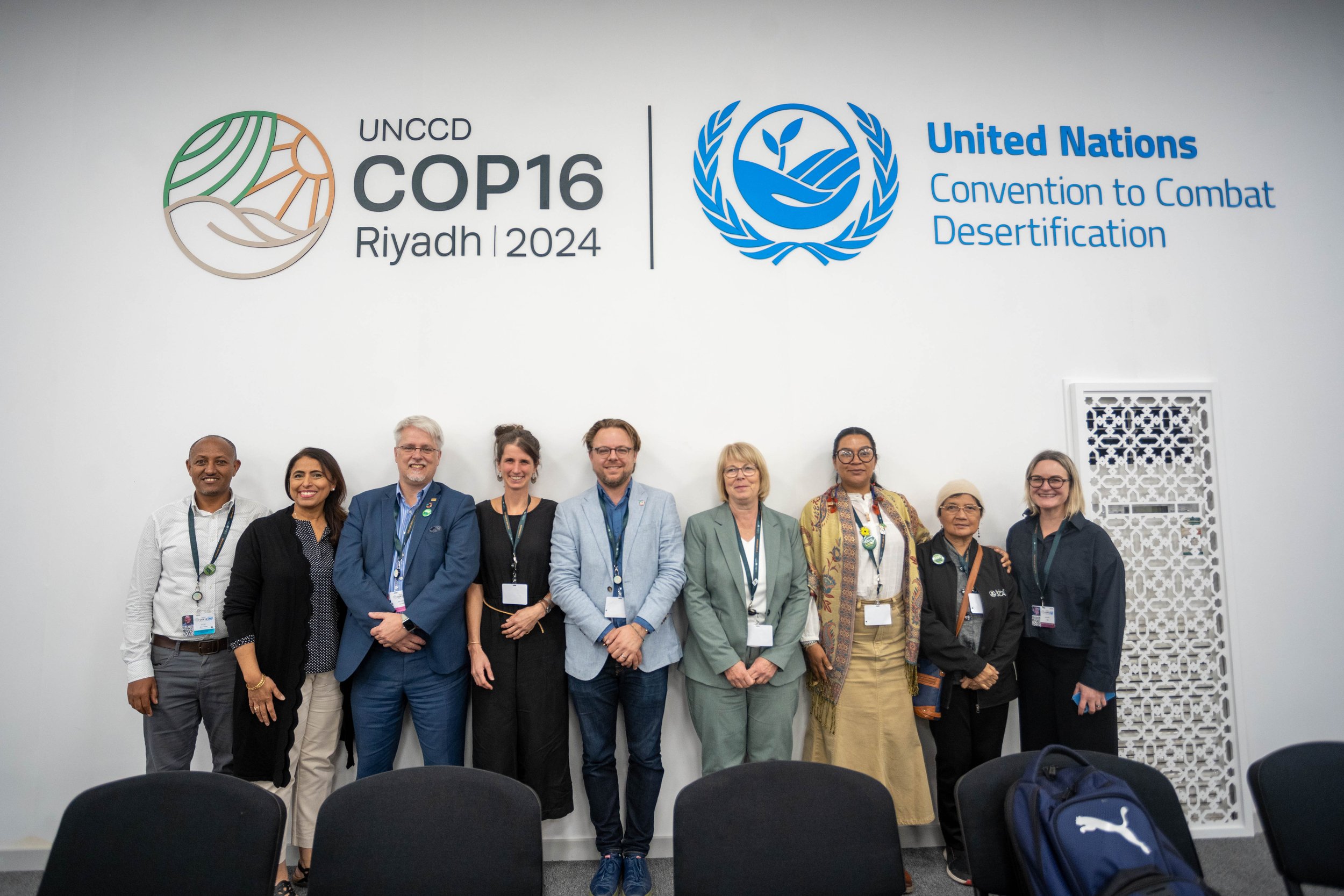































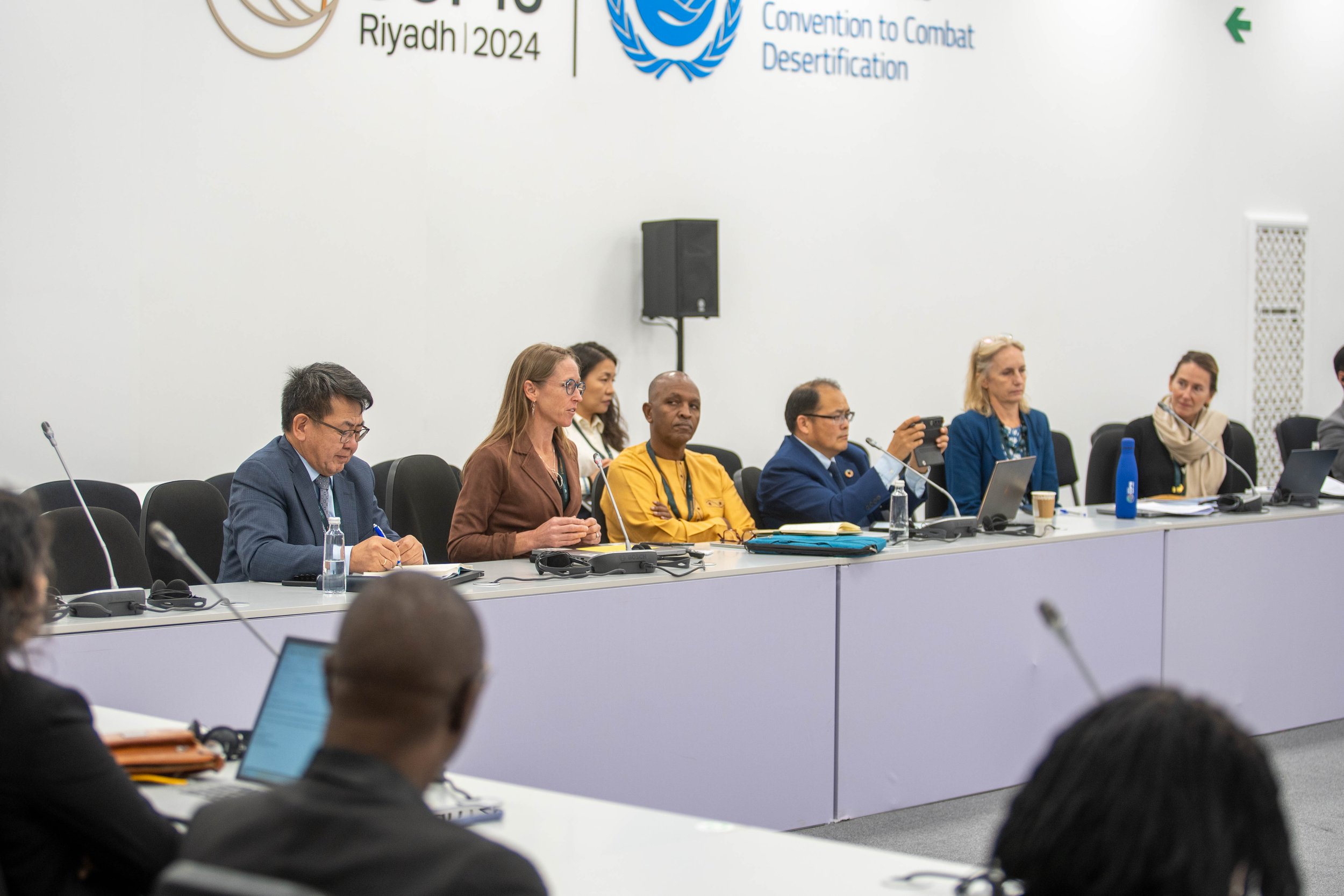




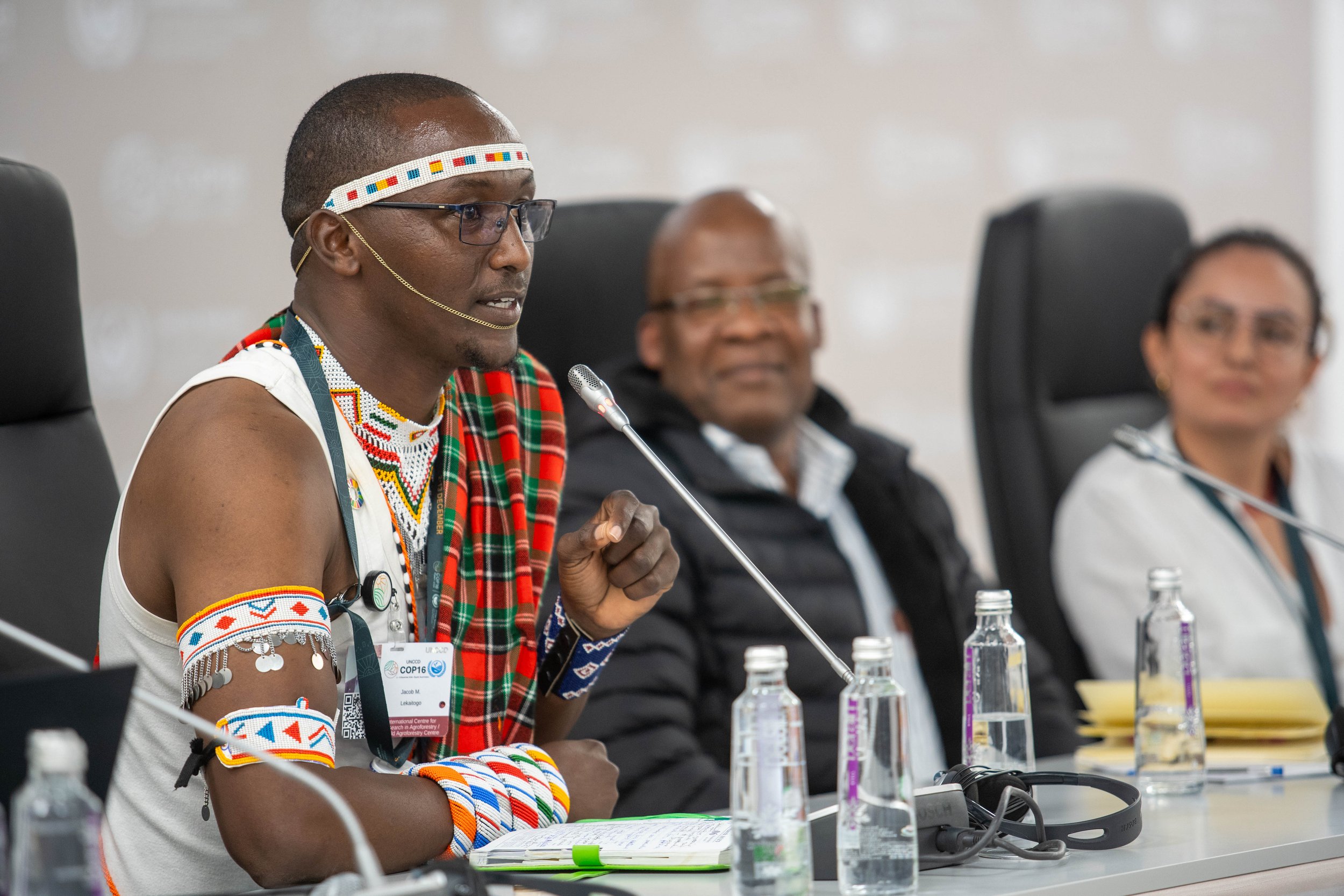











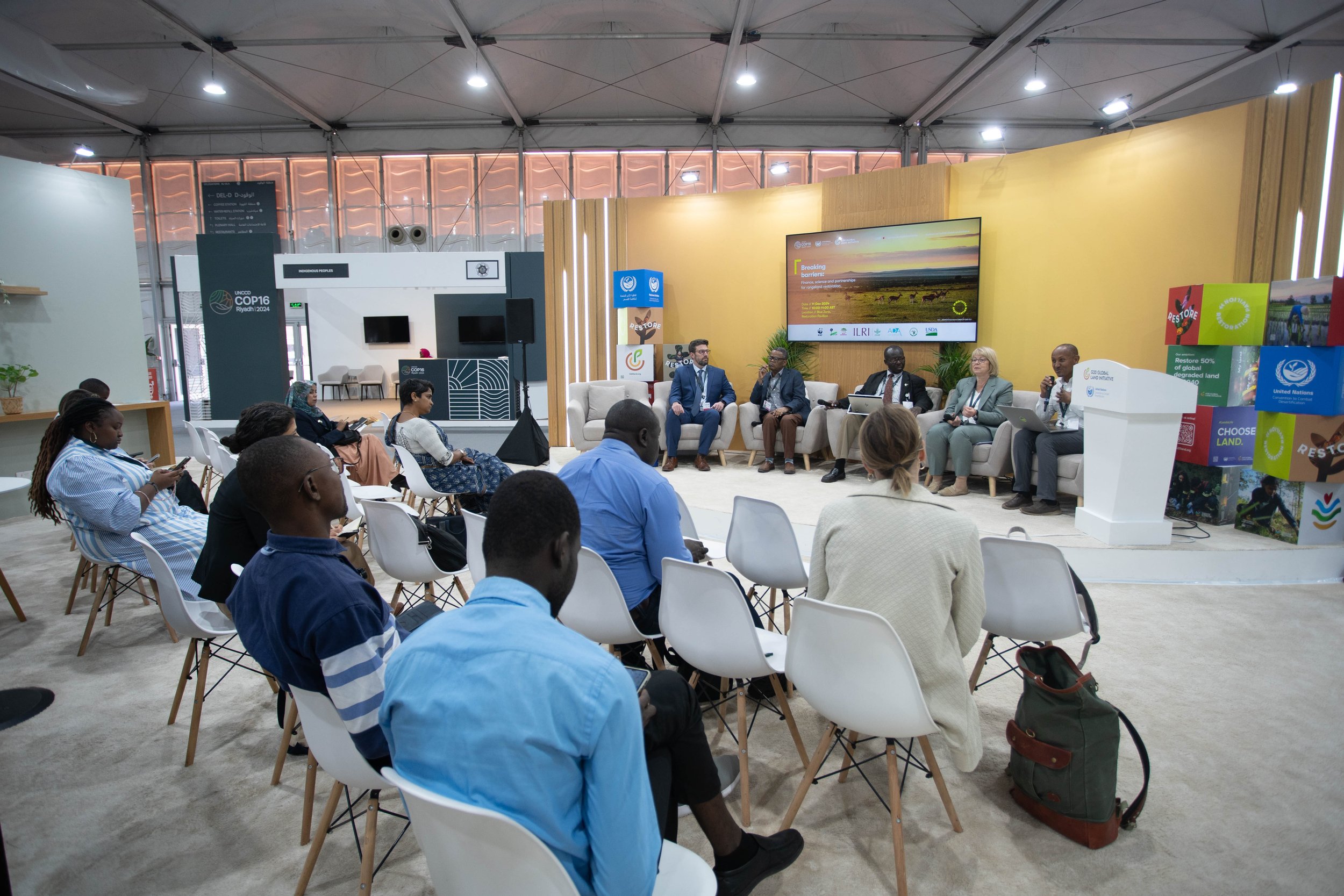
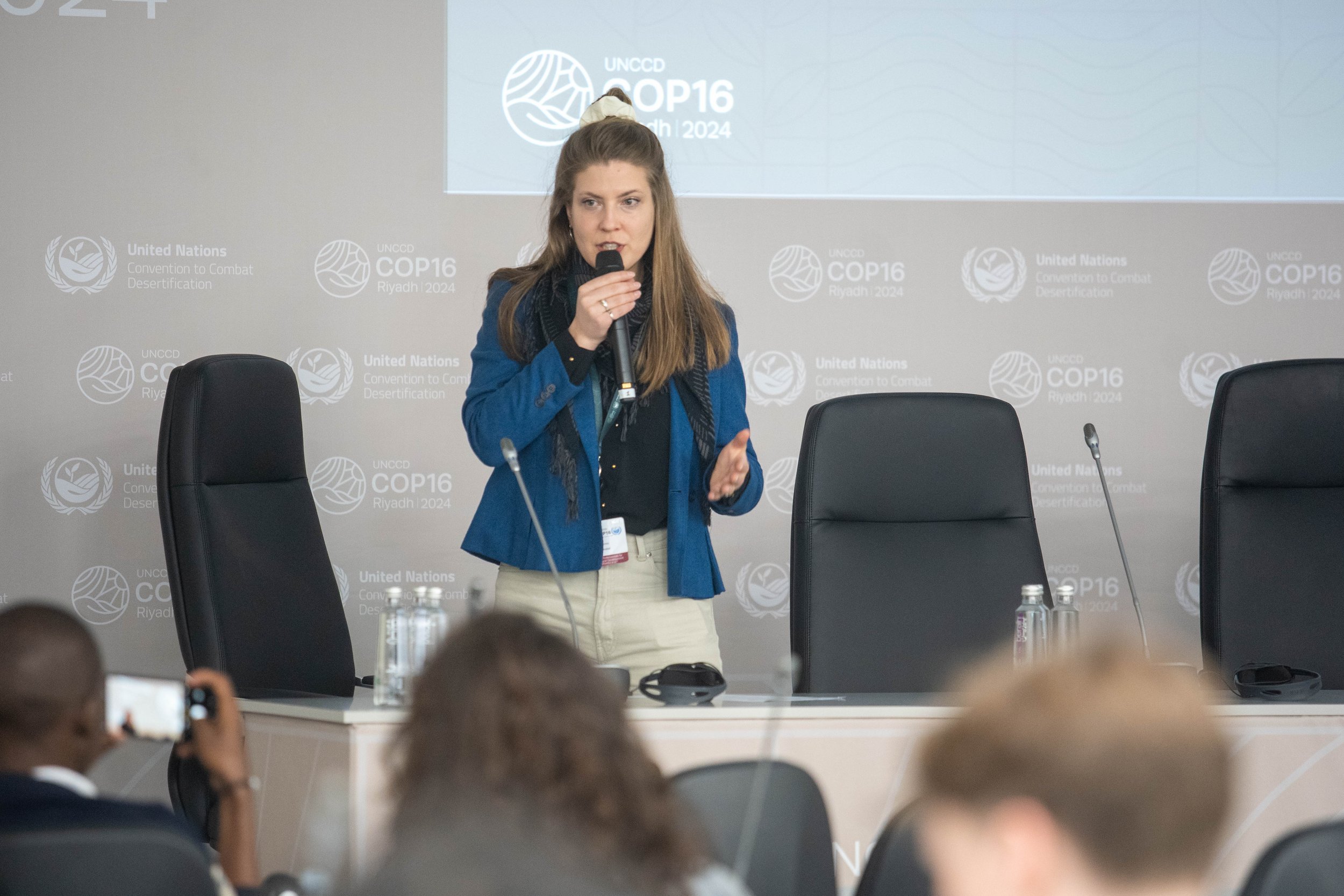

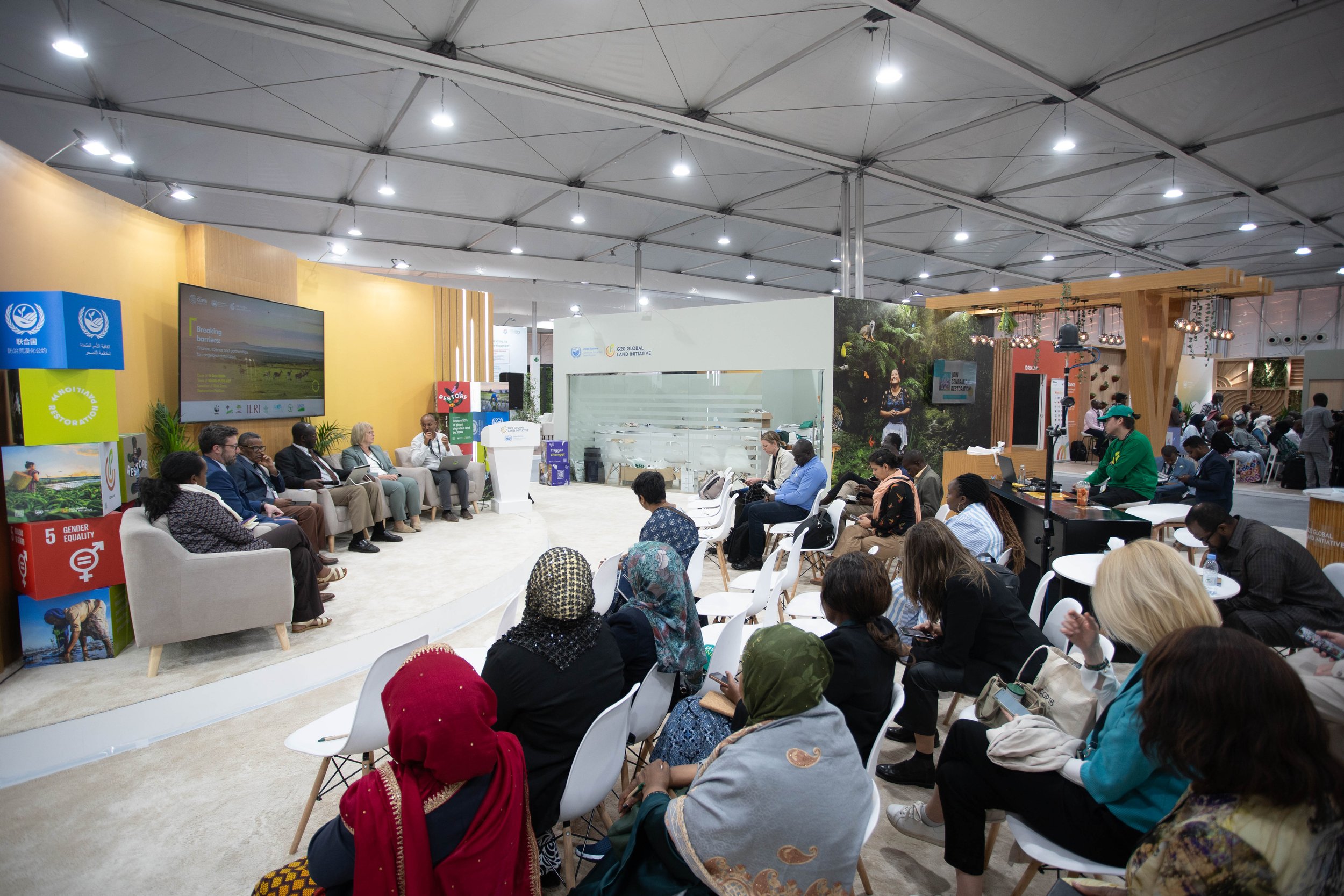
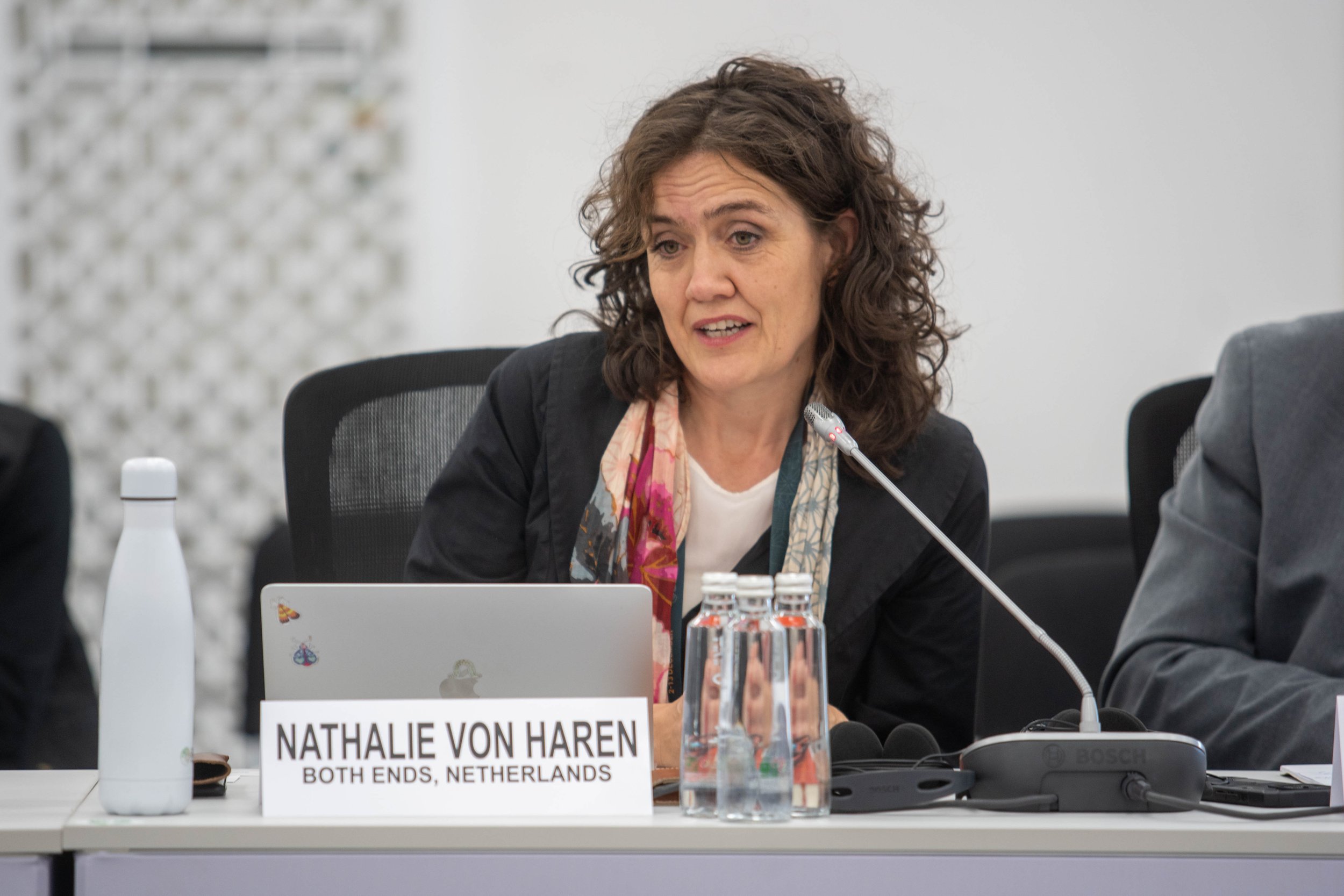
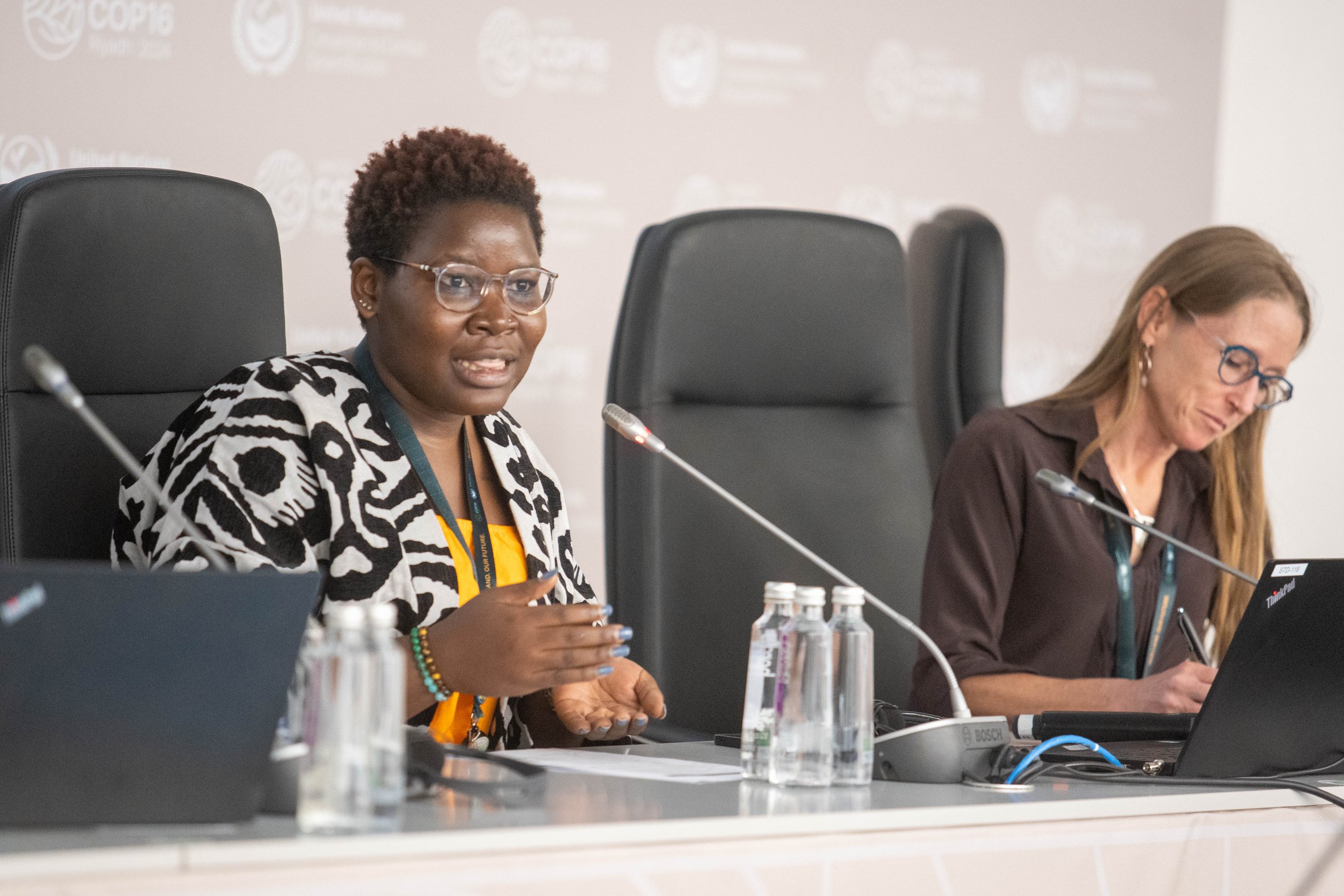
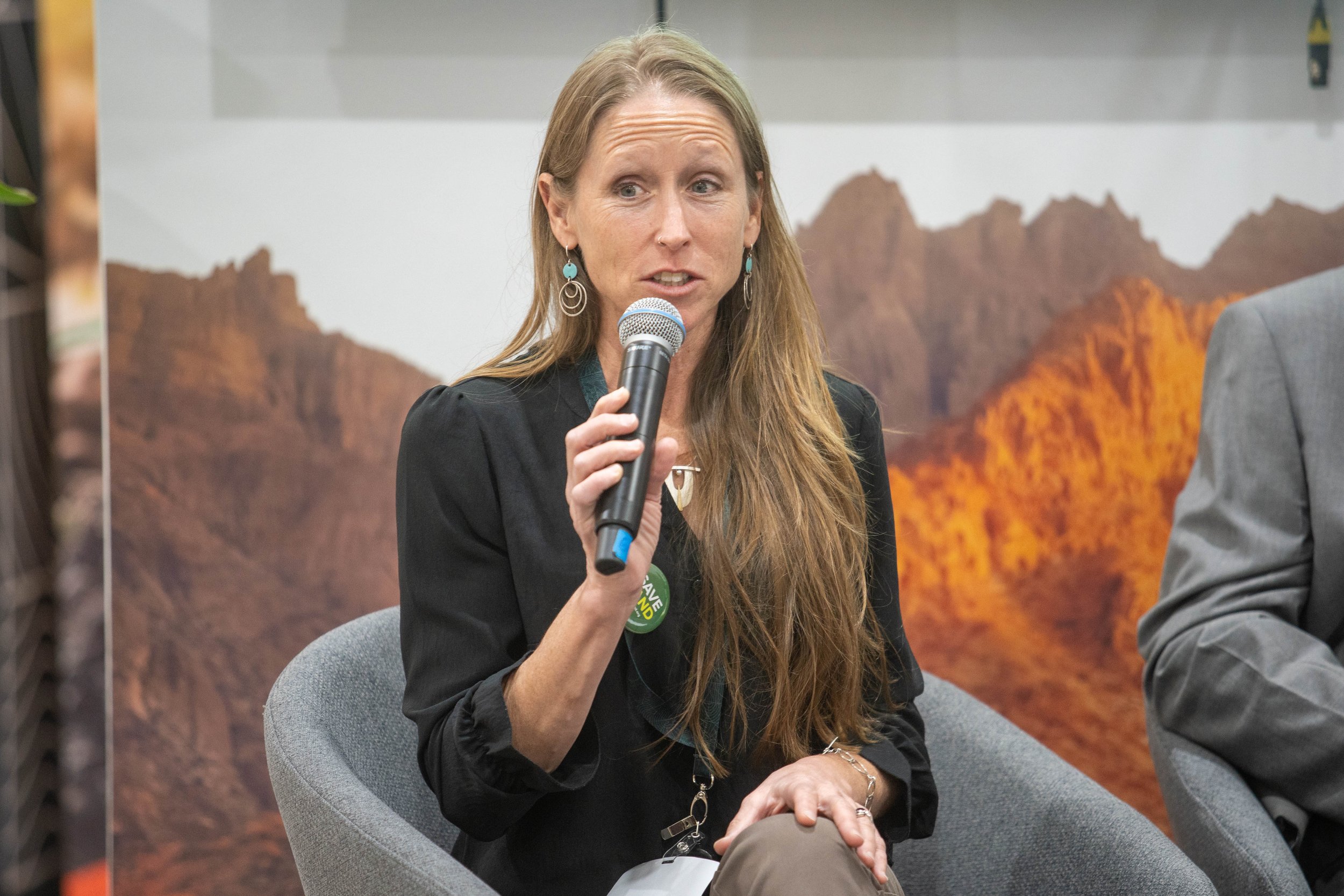

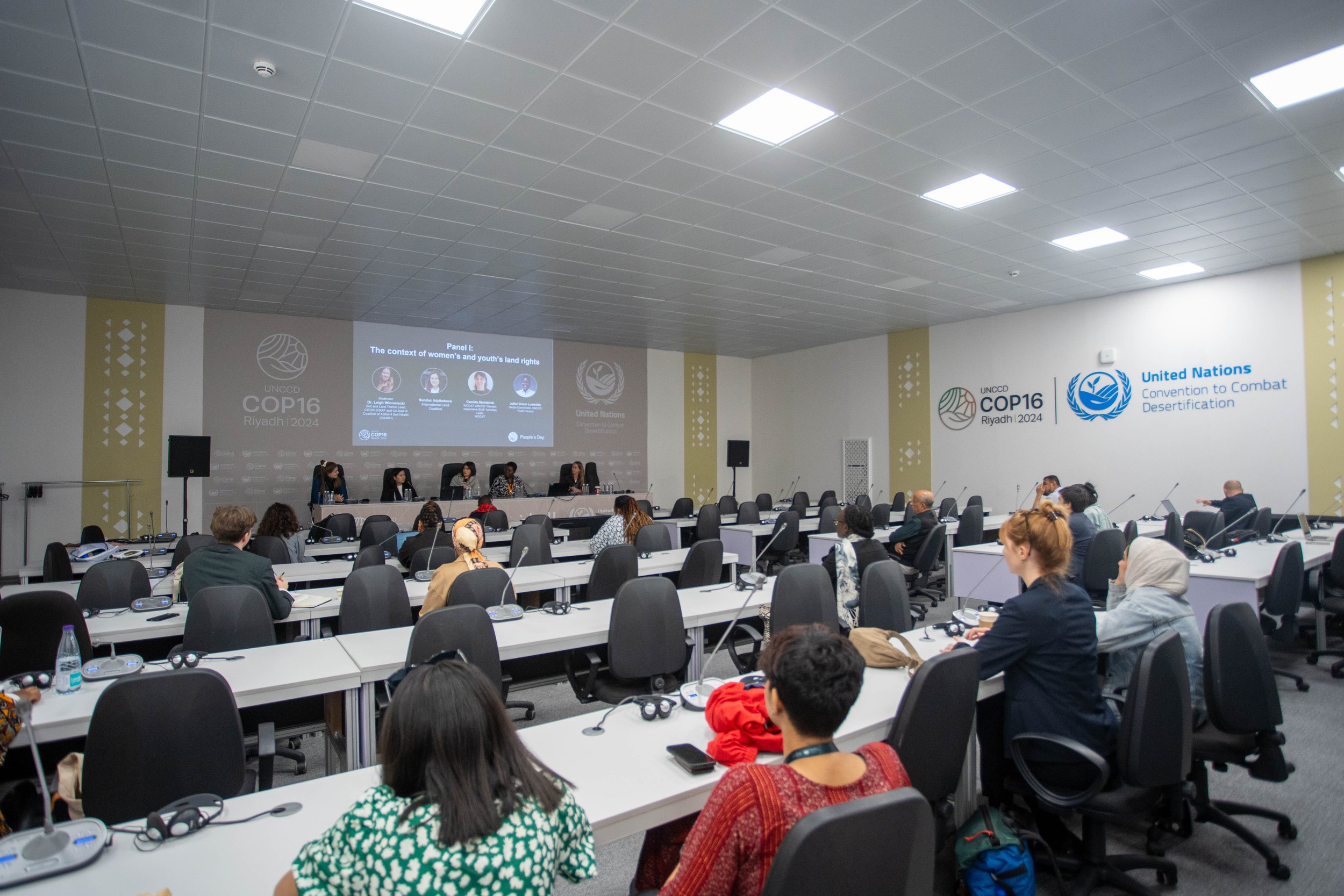

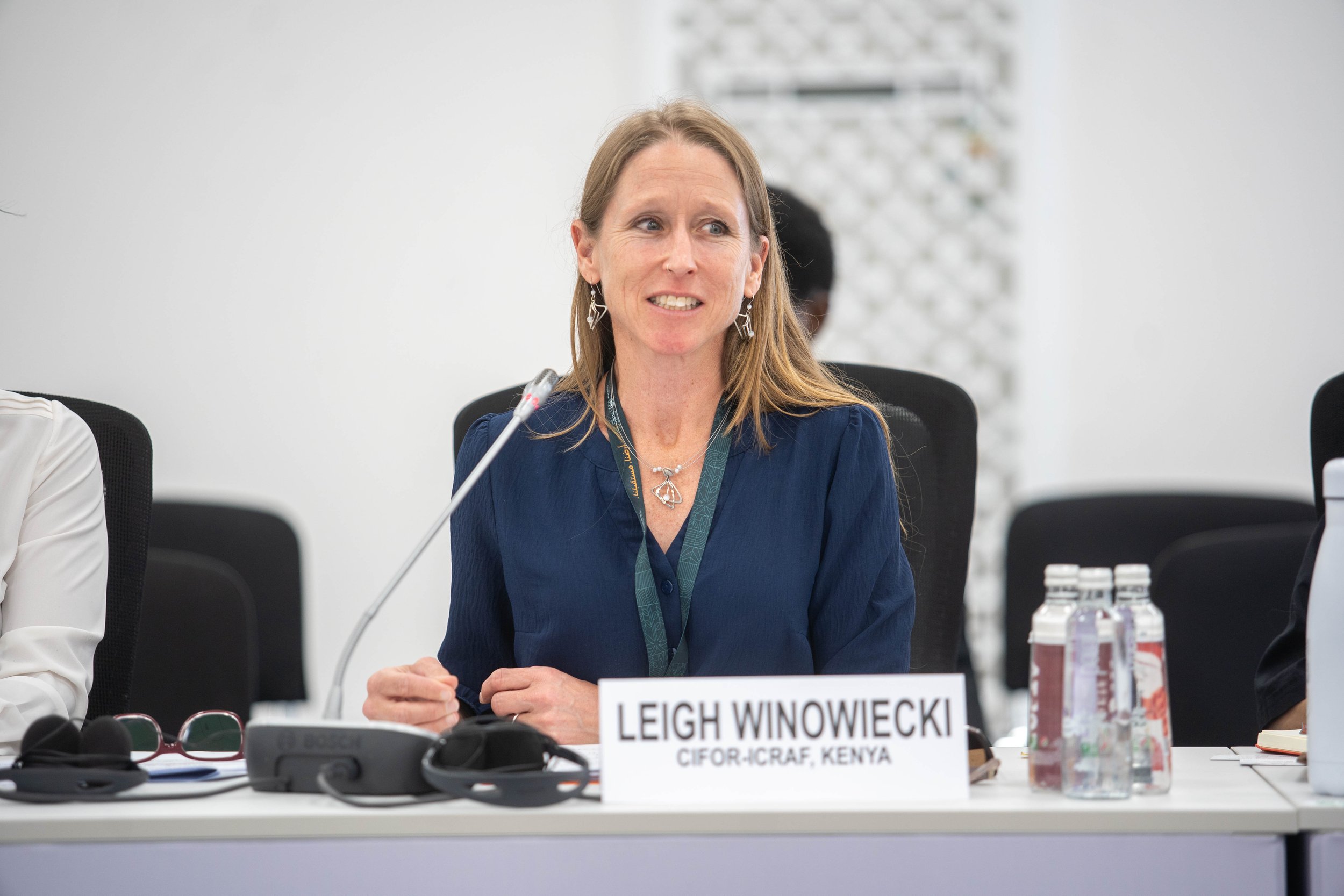
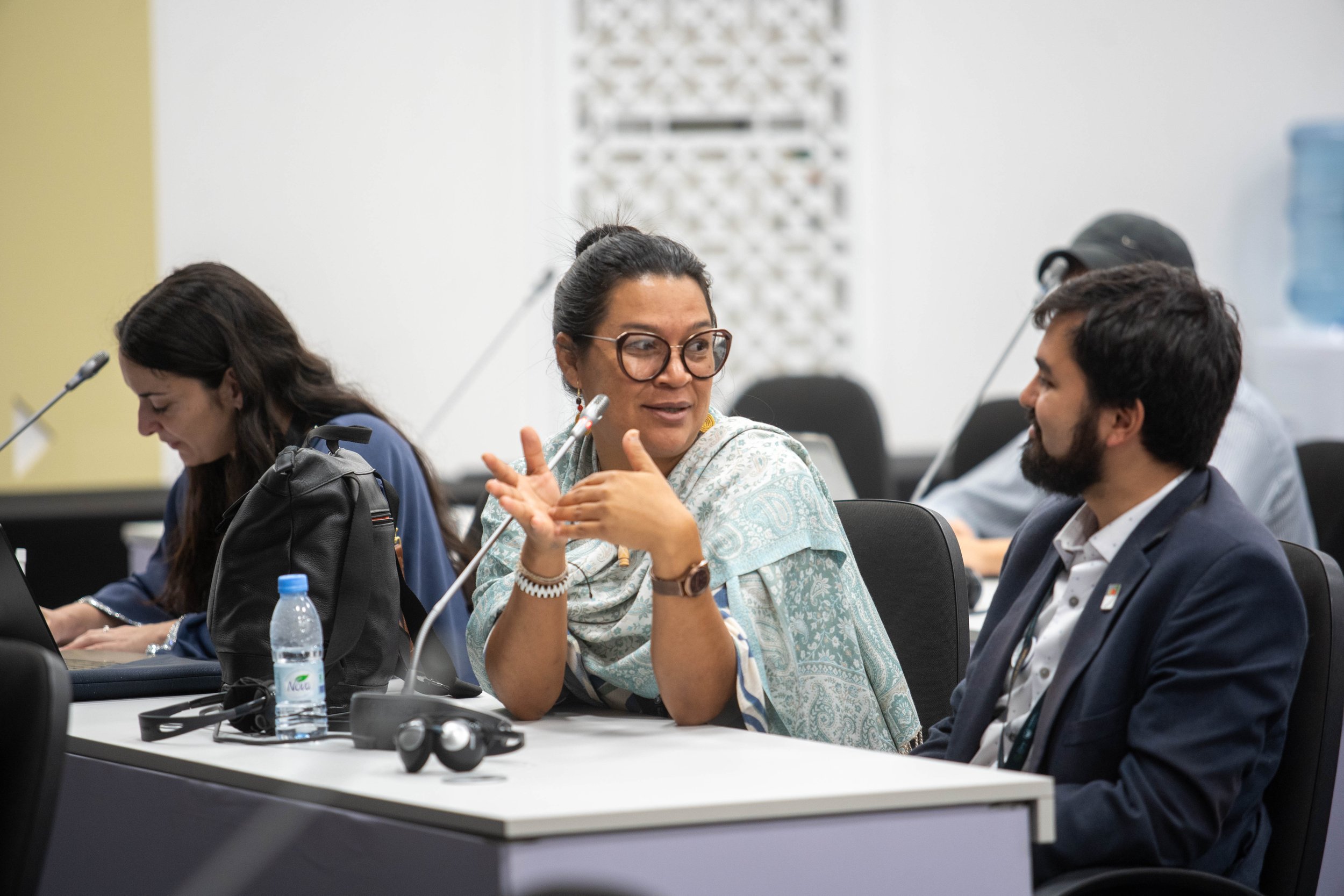
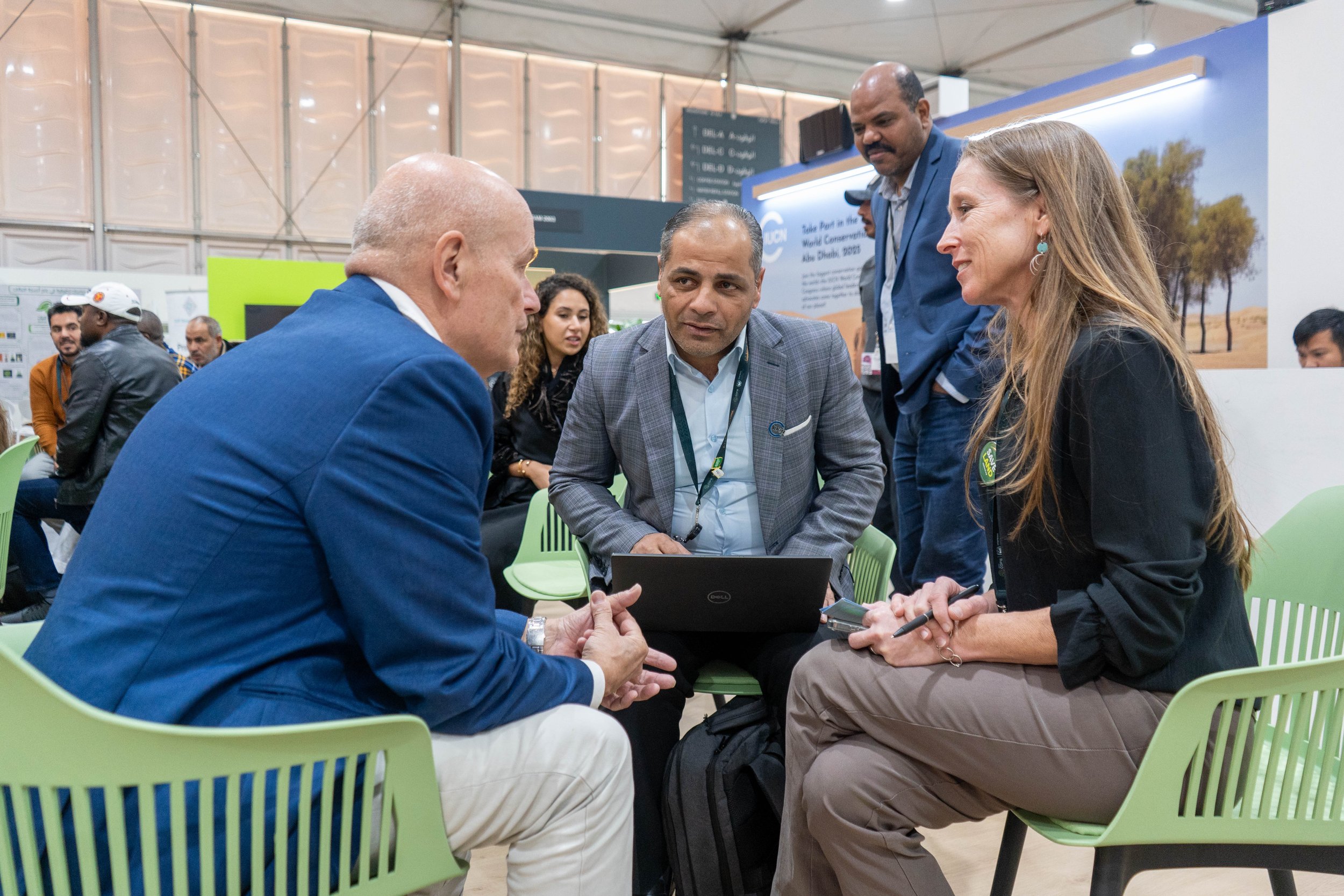
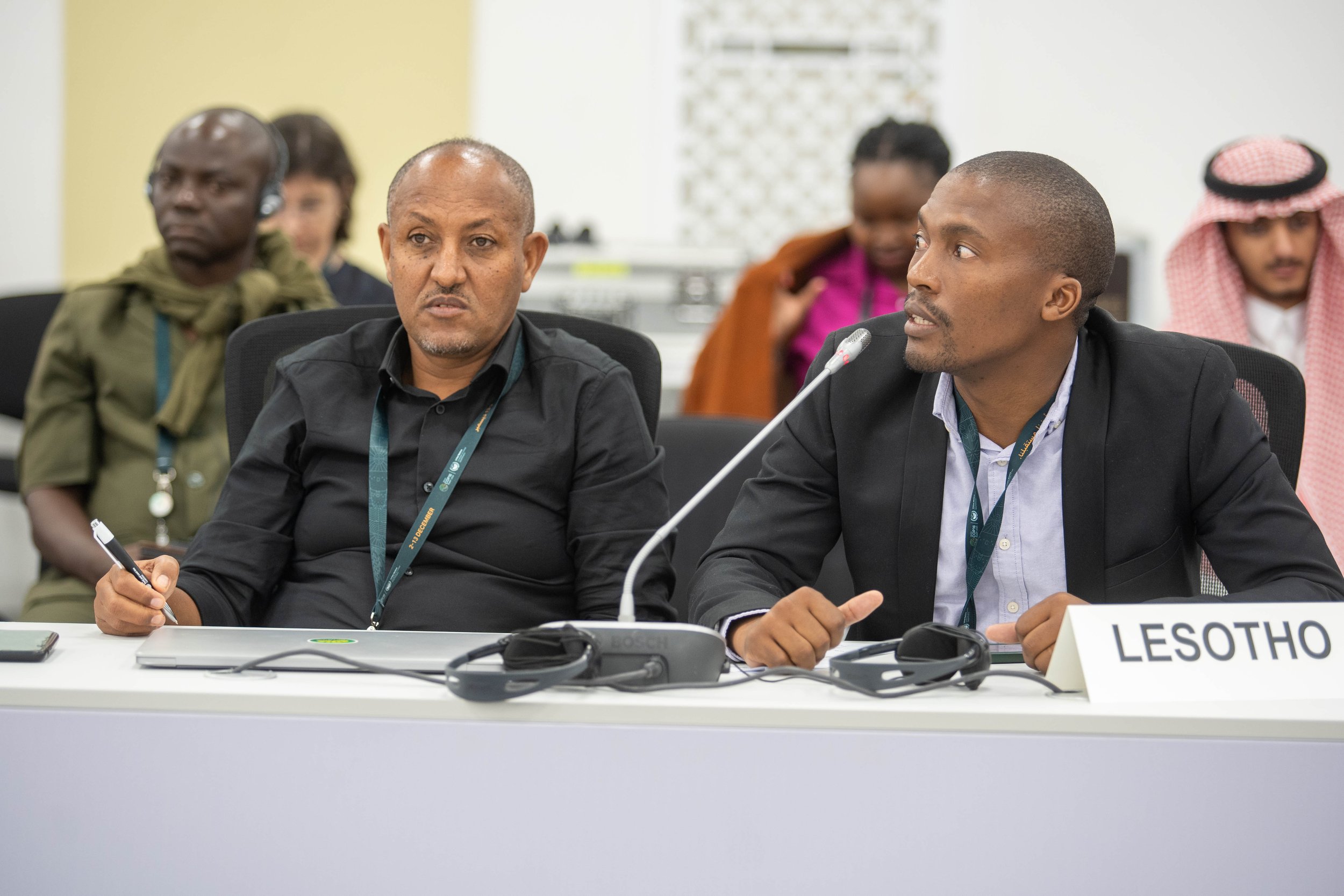
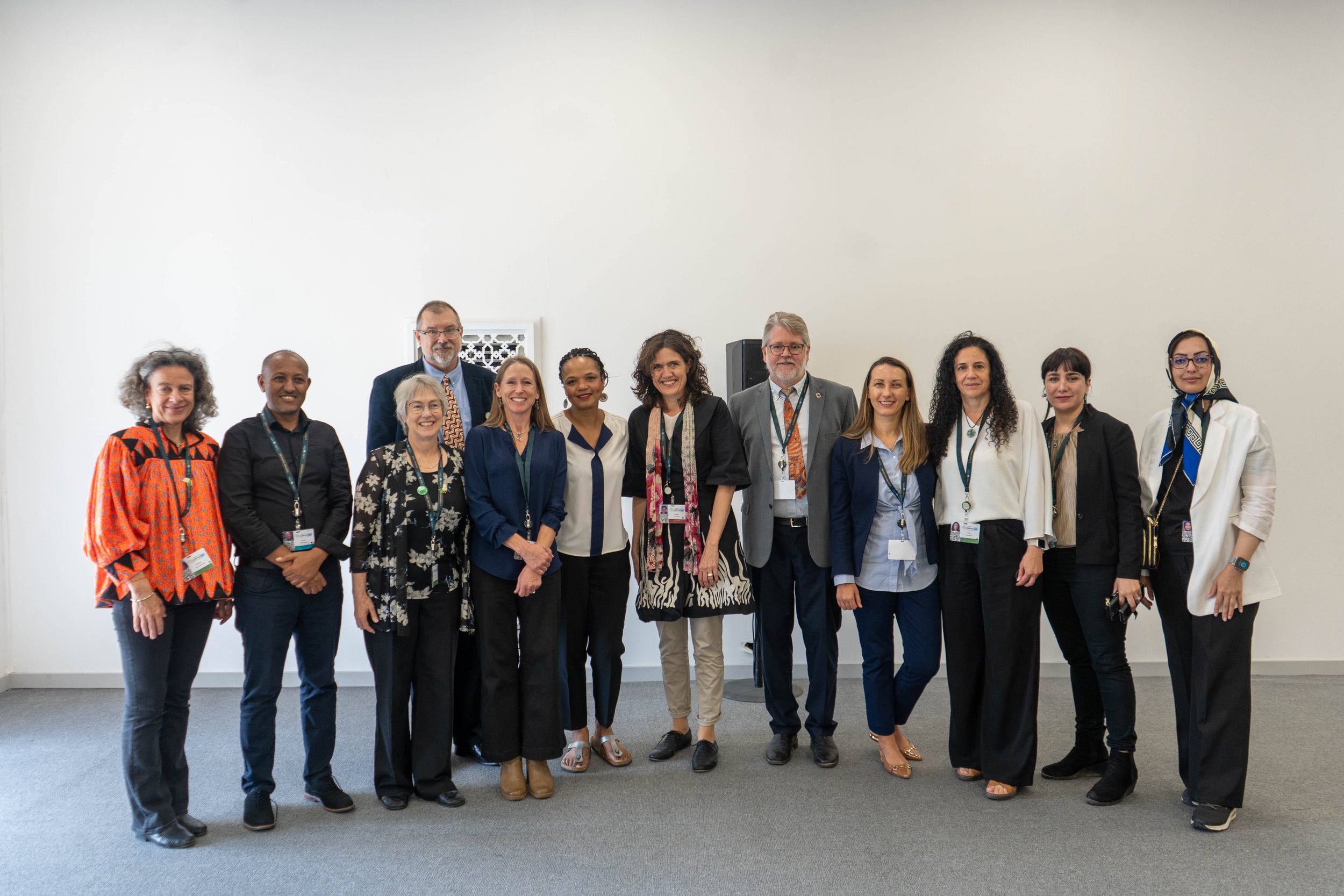



Looking Forward
The Riyadh Action Agenda (RAA) is a major outcome of UNCCD COP16, calling for non-state actors and governments to promote ambitious, voluntary action and collaborative, multi-stakeholder partnerships with diverse people at the centre of the approach. The RAA global platform will convene advocates to address desertification and land degradation, and CA4SH is well-positioned to engage in, lead and support this critical agenda.
Thank you to all CA4SH partners and allies who contributed to such an impactful year of soil health advocacy!
We look forward to growing the Coalition toward our common goal: scaling global soil health. Please follow our newsletter and social media channels and reach out to the Secretariat to learn more about opportunities to engage.
The Riyadh Action Agenda includes three Action Areas (land restoration, drought and water resilience, and agrifood systems) and three enablers (finance, governance, as well as science, technology and innovation) while underscoring the critical role of finance to unlock action. (Source: www.riyadhactionagenda.org)







